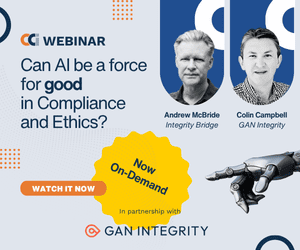Husch Blackwell’s Avi Meyerstein discusses the impact COVID-19 may have on OSHA investigations. Are we looking at increased enforcement? Deregulation? New regulation? Time will tell.
All bets are off as regulatory agencies are tugged in every direction in this pandemic world. Normally, an election year probably would not have seen particularly aggressive enforcement or rulemaking. For a while, COVID-19 health precautions and furloughed work sites meant reduced inspection activity, but enforcement may be picking up, and a battle over new regulations is brewing. Here’s your full update.
As Work Picks Up, OSHA is Increasing Inspections and Focusing on COVID-19
OSHA has experienced an increase in safety complaints from workers in nonessential businesses, according to a May 19 enforcement memo. As a result, OSHA will resume in-person investigations of complaints, referrals and severe injury reports in parts of the country where community spread of COVID-19 is decreasing (which often coincides with more reopening and lower risk for inspectors).
In regions where COVID-19 cases are increasing, OSHA will focus on high-risk workplaces, such as health care providers treating COVID-19 patients and workplaces with a high number of complaints or known infections. In high-risk workplaces, OSHA’s priority will be fatalities and “imminent danger exposures for infection.”
Just as many workplaces are returning toward a new normal, this change in enforcement posture may reflect OSHA’s becoming more visible and active again. The latest OSHA guidance also describes how OSHA will continue to try to limit in-person exposures for its inspectors where possible (such as remote document review, opening conferences by telephone, maintaining social distancing and avoiding direct exposure to infected COVID-19 patients).
The enforcement memo is effective on May 26, 2020 and rescinds the OSHA April 10, 2020 interim guidance.
OSHA Walked Back Guidance on When to Record Employees Sick with COVID-19
As COVID-19 spread through communities, it immediately presented a challenge for employers trying to comply with OSHA’s recordkeeping rules. OSHA’s regulations require most employers to record (and sometimes report) occupational illnesses. Normally, this means gathering facts about an employee’s exposure to illness and making a determination about whether it was more likely than not caused by an exposure to the illness at work. But, with COVID-19, an employee could have become infected anywhere.
In March, Husch Blackwell safety and health attorneys wrote to OSHA, asking for a presumption that – given widespread community transmission – there should be a presumption that COVID-19 infections were not work-related. Shortly thereafter, OSHA adopted our recommended approach. Under the April guidance, only health care, emergency response and correctional employers had to continue doing the usual analysis to determine work-relatedness. Everyone else would only have to record a COVID-19 case if reasonably available objective evidence indicated that the infection occurred at work.
Now, OSHA has walked this back, retracting much of its April decision in a May new enforcement memo.
What do you have to do now? In short, every employer that is normally covered by the recordkeeping standard must make a reasonable, good faith investigation each time an employee tests positive for COVID-19 and may have had workplace exposure. The employer must then determine whether the COVID-19 infection is more likely than not work-related (i.e., more likely than not caused by exposure at work).
Congress and Unions are Pushing for New Regulations
All of this new guidance – indicating that OSHA is stepping up enforcement and putting finer focus on recording cases of COVID-19 – comes at a time when OSHA and the Mine Safety and Health Administration (MSHA) are facing pressure for more regulation and enforcement.
The American Federal of Labor and Congress of Industrial Organization (AFL-CIO) went to court on May 18, asking the U.S. Court of Appeals for the D.C. Circuit to order OSHA to issue an emergency temporary standard for infectious disease within 30 days. The union alleges that OSHA is not acting sufficiently to protect workers from COVID-19, citing “87,000 COVID-19 deaths” and “more than 1.4 million infections” in the country.
In March, the union had petitioned OSHA directly to issue such a standard. Then in April, U.S. Secretary of Labor Eugene Scalia wrote a letter to the union, denying the need for a new emergency standard. Scalia argued that OSHA’s pandemic guidance, as well as its existing authority under the catch-all General Duty Clause, provides sufficient protection. Already, the D.C. Circuit granted the union’s request for an expedited briefing schedule, requiring OSHA to respond to the petition by May 29.
In addition to the lawsuit, some on Capitol Hill have urged OSHA to adopt emergency standards. Chairman Bobby Scott (D-VA) of the House Committee on Education and Labor has called on OSHA to issue an emergency temporary standard for COVID-19 or else face legislation requiring a standard. Meanwhile, Democrats and Republicans have debated whether to provide liability protection for companies that take measures to protect workers.
At a May 12 Senate Judiciary Committee hearing, a glimmer of potential bipartisan consensus appeared. Witnesses testified of the need for “enforceable guidelines” from OSHA, and by the conclusion of the hearing, senators on both sides of the aisle talked about the need for emergency standards.
Chairman Lindsey Graham (R-SC) commented that “one primary goal out of this hearing is to get the standards in place for business, for universities, for schools, whether they come from the CDC, OSHA they need to be out there so people can understand what’s expected of them. And if they do what’s expected, they don’t need to worry about getting sued. The big hole in the puzzle right now is the standard.”
On Thursday of this week, the House Committee on Education and Labor will hold a related hearing: “Examining the Federal Government’s Actions to Protect Workers from COVID-19.” Announced witnesses include the head of OSHA and the head of the National Institute for Occupational Safety and Health (NIOSH).
On the Other Hand, the White House Began a Renewed Push for Deregulation
Not all forces are pushing in the direction of new regulations, however. Despite Chairman Graham’s statements, the White House issued an executive order on May 19, ordering regulatory agencies to roll back regulations that “may inhibit economic recovery.” The executive order directs agency heads to:
- Rescind, modify, waive and provide exemptions from regulatory standards that inhibit economic recovery;
- Provide pre-enforcement rulings regarding compliance and proposed conduct;
- Exercise enforcement discretion and provide an exception for reasonable, good faith attempts at compliance with statutes, regulations and government guidance related to pandemic issues;
- Require enforcement actions to be based on more than nonadherence to guidance; and
- Make permanent rescissions, modifications, waivers and exemptions from regulatory standards that would promote economic recovery.



 Avi Meyerstein is a Washington, D.C.-based partner with the law firm
Avi Meyerstein is a Washington, D.C.-based partner with the law firm 








